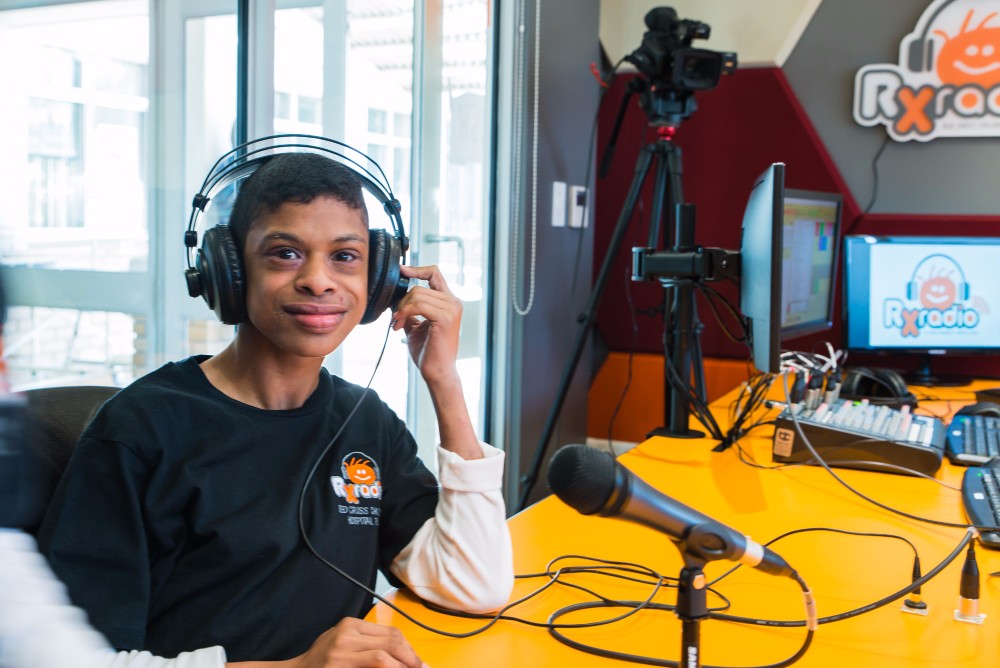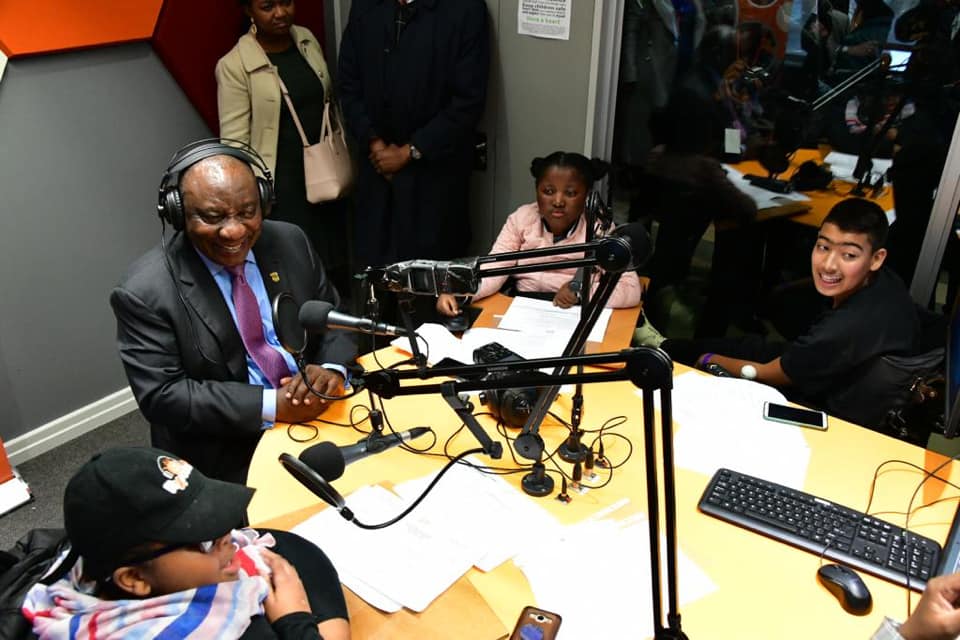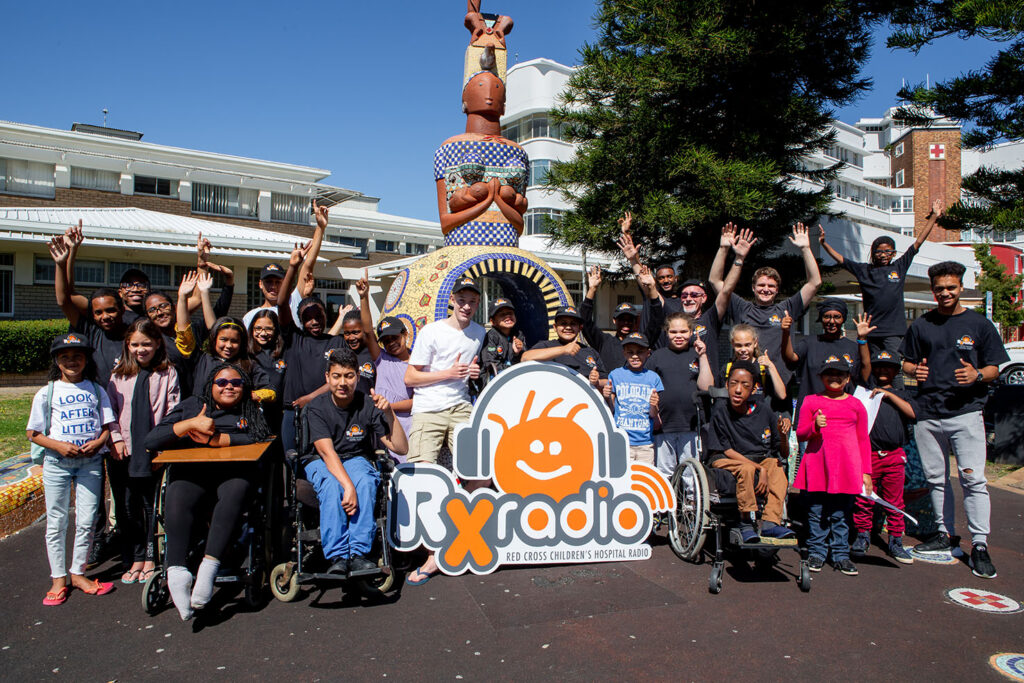March 27 2020 saw South Africa enter a new normal, beginning day one of what was supposed to be a 23-day lockdown. The rippling effect of Covid-19 had landed on us and the world united against a common enemy.
As an 18-year-old boy living with a chronic illness, spinal muscular atrophy, my health care and education is very specific, to allow me a chance to be like my peers who don’t face the same challenges. Living in a community where for many access to proper sanitation isn’t a guarantee, poverty is prominent and safety is a gamble, I found myself having to move to my family’s village in the Eastern Cape. Because of the possible dangers of the pandemic it was better to avoid the overcrowding in my neighbourhood and the fast infection rate in Cape Town.
This being my final year of high school and seeing how lockdown was affecting school attendance, as well as being chronically ill (which meant I had a higher chance of being severely affected by the virus), I was in a really bad position.
Since the lockdown, children have been affected socially, emotionally and physically. Many children suffer in silence because their voices are not heard and their questions rarely answered – this being an ongoing problem before the pandemic. Child-centered organisation RX Radio works to provide a platform where children can access child-friendly information and share their views. Based at Red Cross War Memorial Children’s Hospital in Cape Town, South Africa, the internet radio station is by and for children and provides 24 hours of content ranging from shows, music, podcasts, and public service announcements.

During the pandemic the team has been working remotely using WhatsApp and other remote recording devices to produce content for the Children’s Voices on COVID-19 programming. Children all over the world have been able to use the platform to share their experiences during the pandemic, produce public service announcements, speak to health care workers and listen to experiences from Covid survivors, among other things.
Commenting on the effects of the Covid-19 content, RX Radio content producer Chris Booth said: “…it has opened up dialogue and made information about Covid-19 more accessible to children. Not only did the public service announcements, which were produced by child/young reporters, have child-friendly information, but the interviews and experiences that were gathered acted as a way for children to engage with each other and with adults.”
Being an RX Radio young reporter for three years I now know from my experience that not having this type of engagement can make children feel isolated and not in control of their situation, which can be aggravated by these uncertain times.
Participating in RX Radio’s Covid-19 programme, I was able to share some of my fears while in the Eastern Cape. Sixteen-year-old young reporter, Talitha Counter, had many concerns about the pandemic and, like me, she is wheelchair bound. At 16 weeks old, Talitha was diagnosed with a condition called meningoencephalitis, a viral brain infection that caused her muscles to not function. She also has a tracheostomy which helps her to cough and breathe easier.
Getting Covid-19 is not ideal for a child in our position, but Talitha’s fears became a reality when she was diagnosed with Covid-19 in April. Talitha shared how she felt when the pandemic began: “When I first heard about the virus, I instantly thought when one gets the virus you die immediately and that, for me as a child with [a] chronic condition, was quite scary”. Moving away was how I tried to deal with the fears Talitha was struggling with, but it is hard to run away from a pandemic. Luckily Talitha’s case was not severe and she has since recovered.
Back to Cape Town
Coming back to Cape Town from the Eastern Cape, I was still reserved about my movements, to the point where I missed three of my hospital check-ups. Going to a hospital can bring many mixed emotions because that is where sick people go, but at the same time it is the perfect opportunity for the children who go there to get reliable information.
When asked about Red Cross War Memorial Children’s Hospital making their Covid-19 messaging child-friendly and accessible to patients, medical manager Dr Anita Parbhoo said: “At the Hospital, we tried to communicate in a way that patients and families could understand … As we gained new information, we shared it with our patients and staff so that everyone had the correct information. We used posters, videos and in-person discussions with caregivers, patients and staff … We also had a weekly show on RX Radio where our communications officer interacted with the child presenters and explained various aspects around Covid to the listeners.”
After speaking to my doctors, I got the courage to finally attend my first hospital visit. What made me feel comfortable was the freedom I had to ask my doctors questions about the whole process leading up to my check-up. There was a clearly communicated plan for me, and people were patient with my needs and I felt listened to.
This is what Dr Parbhoo went on to say about the value of children’s voices: “We all agree that it is important for the hospital, and society, to hear what children have to say as they often have some great insights into how things can be made better for them.”
Had my concerns not been taken to account in preparing for my check-up, I probably would have not been confident in that situation. As the youth and supposedly the next future leaders, we’re held back because a lot of the time our voices are not taken seriously, and this can lead to us not being confident with what we have to say. That is why it is important that spaces of discussion be opened up to children.
Spaces for voices
Malikah Swail is a matric student in Elsies River High School. She is also a member of a youth group put together by the Western Cape Commissioner of Children, Christina Nomdo, called the WCCC Government Monitors. The group allows children and youth to come together and discuss children’s rights, learn about the constitution as well as talk about matters affecting them.
Malikah said about the WCCC Government Monitors: “What make[s] me feel good is that we listen to each other and give our input on certain topics … I always look forward to the time of our sessions as we all interact in the discussions … This project is such a good initiative for teenagers especially the ones who did not know what their rights are and [it] teaches them to allow their voices to be heard.”

Practicing her right to be heard, Malikah together with some of her peers took it upon themselves to make sure someone would hear their concerns about their schooling by writing a letter to President Cyril Ramaphosa. Malikah explained: “The letter basically stated the fears around the reopening of schools and how it would have long, as well as short-term, effects on both teachers and learners … I personally believe that decision makers barely even acknowledge the opinion of children with regards to decision making in general and it shows in so many aspects.”
The issue of education was especially frustrating for me. In the beginning of lockdown when schools were closed for the 23 days, it was an opportunity to rest and monitor where the pandemic was leading us. Then as time went by, I began stressing about the delay in my school work. Being in matric it was also a good time to catch up on work and study. Working from home was the best option for keeping distance, but there were issues of data, the quality of connection and focusing in a house full of people. I felt like I was struggling without my teachers around me because I was missing the explanations I get in class.
Sixteen-year-old Saadiq Daniels is an RX Radio young reporter and a member of the WCCC Government Monitors. Saadiq is in a wheelchair and lives with cerebral palsy. He shares his schooling experience: “Home learning was a bit tough as we did not get lessons every day. This is not the same as sitting in class where we all interact and we learn from each other. Fortunately, my mom and sister could assist me with my work.”
Closer to the end-of-year exams which I am currently writing, I believe I was able to find a better compromise because I had more of a choice. I could decide for myself when to go to school and prepare myself for when I chose to study at home. I took my time going back to school, waiting to feel comfortable about leaving home, now I’m back at boarding school part time, which lessens the need to travel.
When I feel heard and part of the decision-making process with regards to issues that involve me, it makes dealing with issues and tasks more meaningful. I am more confident because I know someone else’s opinion was not pushed onto me — especially if I was included in the conversation, that effort makes me feel valued as a person with my own opinion. Saadiq also shared that: “Children have a voice and should be listened to. In the constitution for children rights, it states children should be heard and listened to. I fully agree with this statement as we also experience a lot of things and have a right to disagree and express how we feel.”
Child-centred conversations
Although the pandemic brought many negatives it has allowed me to be involved in more child-centred conversations. Just by writing this article as part of the Isu Elihle Awards allows me to practise using my voice, and share about a platform for children to share their experiences.
Earlier in the pandemic myself, Talitha, and fellow RX Radio young reporter Alaweyah Mogali, were able to speak about the Children’s Voices on Covid-19 programme on a global platform with the mentorship of Chris and the RX Radio team at the WHO Reboot Health and Wellbeing Innovation Challenge. The experience showed me the positive outcome of working to show that my voice matters, because I was able to be on the same platform as international delegates and lead a conversation for children as a young person myself.

In the democracy we live in where most of us are too young to vote, our voice is all we have. Being able to express yourself, to have the confidence to talk to adults and taking charge of expressing how you feel are valuable life skills that can improve how we see ourselves in the future. It is important to include children in global conversations so we too can help with child-based solutions for child-centred problems. Being part of RX Radio has shown me how important it is to talk about my condition and my experience, it allows me to feel understood and in control of my identity while helping others who are like me feel less alone and those who are unlike me can understand me more.
During the pandemic I was able to assert myself and communicate to the people around me what was best for me in the situations that stressed me the most, which was my health and education.
Talitha, Saadiq, Malikah and Alaweyah all have the privilege of being part of spaces where child expression is encouraged, and because of that, have been able to articulate their views on their different platforms with confidence.
Children’s voices and child participation works better than adults speaking on behalf of children on child-focused issues because it allows an honest experience and response, it provides children with opportunities to speak for themselves and it encourages other children to do the same, it also makes issues that seem too big more accessible to us.